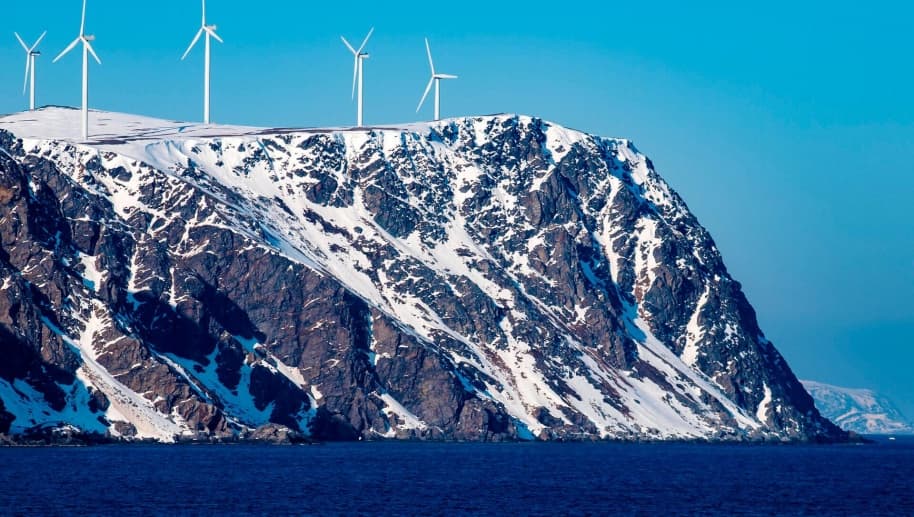
As part of the Russian Energy Week.
How to Achieve Carbon Neutrality in the Arctic
The pandemic has accelerated the development of green energy throughout the world. In 2020–2021, many large economies embarked on a path of decarbonisation as part of their post-pandemic recovery and, in doing so, took measures to limit global warming to 1.5°C. As a result, 20 countries (including the EU and China) have set ambitious targets in the last year to achieve carbon neutrality by the middle of the century. 2020 also saw the initial steps towards cross-border carbon regulation, which the EU plans to introduce in 2023 as part of its implementation of the EU Green Deal. According to EY, the cumulative effect on the Russian economy could reach EUR 15 billion by 2030. The latest evolutionary developments in Russia’s energy sector, which include alternative fuels and renewable energy sources and pay particular attention to its natural geography, have a tremendous potential, yet the pace of transformation lags behind the rest of the world. According to international experts, achieving carbon neutrality is a necessary condition for long-term global economic development, and the Arctic region has an important role to play in this. The Arctic is a strategic region for the development of large-scale renewable energy projects and the creation of development clusters across a whole range of industries. The unique natural resources, access to strategic sales markets and the development of the Northern Sea Route represent an unrivalled springboard for the large-scale rollout of ecosystem development programmes based on renewable energy projects and the realization of the region’s export potential, while reducing the anthropogenic impact. How can the overall anthropogenic impact and the Arctic’s carbon footprint be reduced? Can the industrial development of the Arctic be reconciled with the reduction of the carbon footprint? How can environmentally friendly economic development be made attractive to local communities and business? How can individuals be encouraged to take greater personal responsibility for reducing their carbon footprint?
Moderator:
- Ryan Chilcote – TV Host, Special Correspondent, PBS NewsHour.
Panellists:
- Yuriy Vasilyev – Executive Director of the Arctic Technologies Institute, Moscow Institute of Physics and Technology.
- Dmitry Gorshkov – Director, World Wildlife Fund Russia.
- Andrey Grachev – Vice President for Federal and Regional Programs, Norilsk Nickel.
- Nikolay Korchunov – Ambassador-at-Large of the Ministry of Foreign Affairs of the Russian Federation.
- Milena Milich – ESG Director of the Far East Region, Sberbank.
- Vladimir Panov – Special Representative for the Development of the Arctic, State Atomic Energy Corporation ROSATOM; Deputy Chairman, State Commission for the Development of the Arctic.
- Anton Poriadine – Partner, Leader, EY-Parthenon in CIS; Co-leader of Energy Sector, EY-Parthenon in Europe.
- Alexey Chekunkov – Minister of the Russian Federation for the Development of the Far East and the Arctic.
Front row participants:
- Marja Koskela – Plenipotentiary Minister, Deputy Head of Mission of the Republic of Finland in the Russian Federation.
- Stalbek Mishakov – CEO, Northern Star LLC.
- Arni Thor Sigurdsson – Ambassador Extraordinary and Plenipotentiary of the Republic of Iceland to the Russian Federation.
- Vyacheslav Sinyugin – Deputy General Director for Digital Transformation and Energy Project of Zarubezhneft.
- Falk Tischendorf – Official Representative of the Federal State of Mecklenburg-Western Pomerania (Germany) in Russia; Head, Russian Practice of ADVANT Beiten; Chairman of the Committee for Localisation and Industrial Production, Russian-German Chamber of Commerce.
Green Energy in the Arctic
The priority of Russia’s chairmanship in the Arctic Council is “Responsible Governance for a Sustainable Arctic”. In this context, the region’s development should not only take into account the vulnerability of the Arctic, but also its potential contribution to the transition to a low-emission economy and, consequently, to the fulfilment of the goals and objectives of the Paris Climate Accords. Regional development must be based on advanced innovative technologies, including expanding the use of renewable energy sources to improve the living standards of the Arctic people. Numerous new challenges, including the growing role of renewable energy sources, involve complex issues that go beyond technologies in such areas as the economy, regional development, and many more. This integrated approach helps developing a “transformational dialogue” to voice, understand, and resolve the various aspects of these complex problems through equal participation of all stakeholders. What challenges and threats does the Arctic face amidst this “technological transition”? What are the prospects for developing nuclear power generation in the Arctic? Can the development of hybrid energy projects in the Arctic (diesel generation + RES) increase the availability of renewable energy for consumers in the Arctic zone of the Russian Federation? How can the development of a gas chemical cluster based on the resources of the Yamal Peninsula contribute to a low-emission economy?
Moderator:
- Maksim Nechaev – Director for Consulting, IHS Markit Russia.
Panellists:
- Roman Berdnikov – First Deputy General Director, Member of the Management Board, RusHydro.
- Darya Gerasimenko – Professor of Sustainable Development, Advisor to the Rector, Samara National Research University named after academician S.P. Queen; Ph.D., University of Finance Switzerland St. Gallen (HSG).
- Nikolay Korchunov – Ambassador-at-Large of the Ministry of Foreign Affairs of the Russian Federation.
- Svendsen Peter – Сommercial director, Wavepiston.
- Vasiliy Potemkin – Managing Director, Far East and Arctic Development Corporation.
- Andrey Chibis – Governor of Murmansk Region.
Front row participant:
- Falk Tischendorf – Official Representative of the Federal State of Mecklenburg-Western Pomerania (Germany) in Russia; Head, Russian Practice of ADVANT Beiten; Chairman of the Committee for Localisation and Industrial Production, Russian-German Chamber of Commerce.